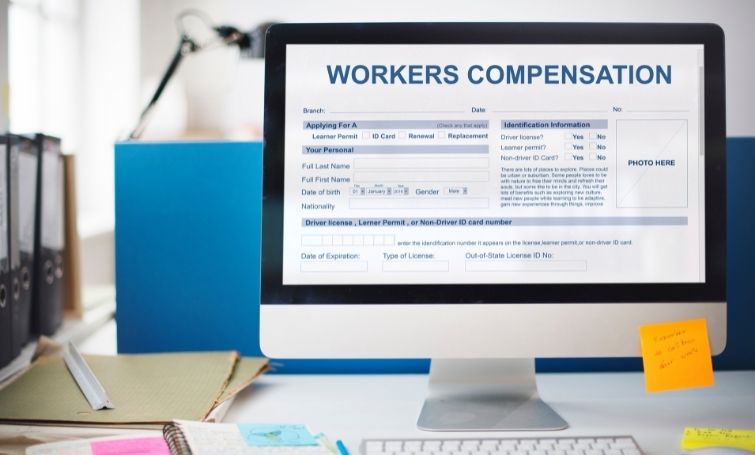When a worker is injured, worker’s compensation or comp is activated immediately. But does it work for everybody? Are there any requirements for it? The following will explain how worker’s comp works on both the employees and businesses.
Why Do Businesses Have Workers’ Compensation?
Workers compensation is insurance for businesses that protect them from financial loss. It is a government-mandated program for employees who were proven to be injured or became ill while serving work hours at their company. Due to their occupations, the insurance program might give cash or healthcare benefits, or both.

Almost all states must carry this policy, save from Texas and New Jersey, which is optional. But while companies do have it, certain conditions apply so that sick or injured workers can claim it. The employer is responsible for paying the insurance premium. On average the compensation policy is USD$560 annually or USD$47 per month.
Coverage cost also varies depending on the following:
- The type of work that employees do
- Risks at work
- Claims history
- Business size
- State laws
The benefits from the insurance policy will also include a fraction of the wages for that period. It also means that the employee is not allowed to work at this time. Benefits may vary depending on the company and the type of injuries that they cover. Each state has its own Worker’s Compensation Board that governs that program and oversees every claim.
Also note that if the business is a large company such as a construction firm owning a warehouse with heavy machinery and similar business, they will pay higher premiums. Businesses with only three employees and uses office equipment won’t pay as much.
The cost of monthly premiums for many workers might seem expensive. But the protection that it can provide for workers once they are injured is still worth the peace of mind of employers. If employees do not feel the support of the company they work for, they might face lawsuits and fines that will cost them even more to fulfill.
What Does The Workers’ Compensation Cover?
The Workers’ Compensation covers various injuries. Almost all injuries and illnesses entitle employees to benefits as long as they are work-related. They could be from off-site environments, one-time accidents, and cumulative diseases, among others. Companies must employ safety practices that employees must adapt to for minimizing hazards. The following are the most common injuries and sicknesses that Workers’ Compensation covers:
- Slippages, Trips, And Falls
Employees who get hurt for falling, tripping over, and slipping are making the most claims. They account for the third of personal injuries of various types, including broken bones, pulled muscles, and sprains.
- Stress Caused By Repetitive Tasks And Overexertion
Workers who claim benefits for musculoskeletal disorders such as back pain are costing employers seven billion dollars every year. Along with lost funding are 100 million workdays lost given to employees for treatment and recovery. As a result, companies suffer from poor productivity and constant payouts.
On the side of the employees, injuries and sicknesses can have long-term or lifetime effects. In severe cases, they can cause disabilities that could change a person’s life for the worse. Repetitive overexertion accounts for almost 33% of work-related injuries.
- Injuries Caused By Machinery
There is a risk of accidents at work locations that house heavy machinery. It’s common in construction sites, factories, and farming facilities. For construction-related accidents, employees often seek help from construction accident lawyers. Lawyers at https://www.personalinjurylawyersbronx.com/construction-accidents ensure that the employees get fair compensation for all the financial damage that they had to go through.
Workers become vulnerable when machinery is not properly guarded. Limbs can get caught or hit by moving components. Employees nearby can also get struck by flying or falling objects.
The severity will depend on how much the worker is protected by standard safety gear. If they don’t have proper safety equipment, it could result in arms and hands crushed, blindness, or worse.
- Vehicular Accidents
Besides machinery, vehicles can also put employees at risk of getting hurt. They can be hit or run, be crushed, or struck by falling objects from a vehicle. There should be preventative measures in place for personnel to follow to avoid automobile accidents.
- Explosions And Fires
When employees get hurt because of gas leaks from faulty lines or open flames, they can get injuries that cause severe damage to their respiratory system, burns in different degrees, and the possibility of disfigurement. Explosions and fires make up three percent of the causes of work-related injuries. They are also responsible for the highest rate of casualties.
How Workers’ Compensation Process Works
Employees must be aware of what to do once they get injured at the workplace. As the employer, you can expect the following, and you must understand your duties and responsibilities as soon as your workers report an injury.
- Train workers to communicate their illness or injury as soon as possible. They must understand that the report has a time limit when filing a claim. Have your employee fill up a form stating the date, time, and accident details. Organize important receipts and proper documents and report to your insurance provider after. Employers might need to submit a claim and report to the state’s workers’ compensation board.
- The employee must seek medical treatment immediately. The time could vary depending on the severity of the injury. Injured employees could do so before or after getting hurt.
- Once the employer submits the paperwork, they will have to wait if the insurer will approve or deny the claim. If the insurance company supports the claim, the employee can accept it or negotiate a settlement. The employee is also allowed to appeal if the provider denies the claim.
- The employee will have to spend time undergoing treatment and resting to recover fully. The employee can only wait until the employee can return to work. The employer can temporarily replace the injured worker or offer modified duties and responsibilities.
- The employer will then need to inform the insurance company that the employee is well enough to work. The insurance company will also need to pay permanent benefits if the worker is permanently injured.
In Conclusion
Worker’s Compensation insurance is mandatory in most states to help both the workers and employers financially. The injured worker will receive benefits while the company doesn’t have to lose money. But while the monetary support is there, injuries can still cause pain and suffering. Both the workers and employers must work together to help minimize accidents in the workplace.


























